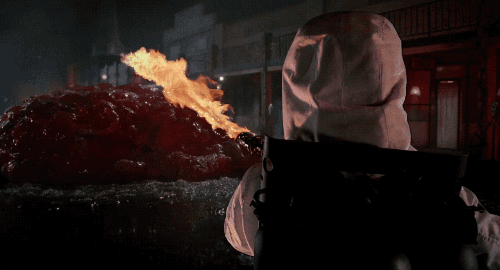⚙️ service blob stop
Doing everything so you don't have to understand anything

systemd shall eat the world, even as you set it on fire
In the beginning was PID 1, and PID 1 was with systemd, and systemd was PID 1. And systemd said, "Let there be services," and there were services. And systemd saw that it was good, so it decided to manage time, networking, DNS, and your entire existence.
"I don't always manage init systems, but when I do, I manage everything else too."
— systemd, probably
🔧 SystemD Component Collection
⚡ Essential systemctl Commands
systemctl status
Check if everything is on fire (spoiler: it is)
systemctl start service
Start a service and pray to the dependency gods
systemctl stop service
Stop a service and wait for the cascading failures
systemctl enable service
Enable a service to start automatically and break on boot
systemctl daemon-reload
Reload configuration because you changed a comma somewhere
systemctl list-units --failed
See all the ways your system is currently disappointing you
journalctl -u service -f
Watch logs scroll by faster than you can read them
📄 Unit File Anatomy
Metadata and dependencies that form a complex web of interdependence
Service-specific directives with 47 different execution options
Installation directives that determine how your service will break
For when your service needs to spawn children and confuse everyone
Keep trying until the heat death of the universe
Target dependencies that create circular dependency nightmares
🧠 The SystemD Philosophy
🔧 SystemD Troubleshooting Guide
- Check if it's actually systemd's fault (it probably is)
- Run
systemctl statusand pretend you understand the output - Check journalctl logs for cryptic error messages
- Try
systemctl daemon-reload(the universal fix) - Reboot and hope the problem disappears
- Google the error message and find 47 conflicting solutions
- Question your life choices and career in system administration
- Consider switching to BSD (but don't actually do it)
🔥 SystemD Fun Facts
- systemd handles more services than Santa's workshop on Christmas Eve
- The systemd source code contains more lines than the Linux kernel (citation needed)
- Binary logs were invented so humans couldn't read them without systemd tools
- systemd-resolved resolves more than just DNS; it resolves your faith in simplicity
- Target dependencies are systemd's way of playing 4D chess with your boot process
- Every systemd component starts with "systemd-" to ensure maximum namespace pollution
- The phrase "it just works" was retired after systemd became mainstream
- systemd can manage containers, but it can't manage your expectations
📈 The Evolution of SystemD
SystemD began as a simple init system replacement and evolved into the digital equivalent of kudzu - an invasive species that grows rapidly and takes over everything in its path. What started as "let's make booting faster" became "let's manage every aspect of the operating system."
The beauty of systemd lies in its ambition: why have separate tools for separate jobs when you can have one massive blob that does everything? The horror of systemd lies in its execution: trying to understand why your service won't start requires a PhD in systemd-ology.
In the systemd world, everything is a unit, every unit has dependencies, and every dependency has the potential to create a circular dependency that crashes your system in creative new ways.
⚠️ Service Blob Warning
Warning: systemd may consume your init system, logging infrastructure, network configuration, time synchronization, DNS resolution, container management, and your will to live.
Side effects may include: increased complexity, dependency hell, binary logs, and the inability to understand how your own system works.
Do not taunt systemd. systemd is already everywhere you thought it wasn't.
